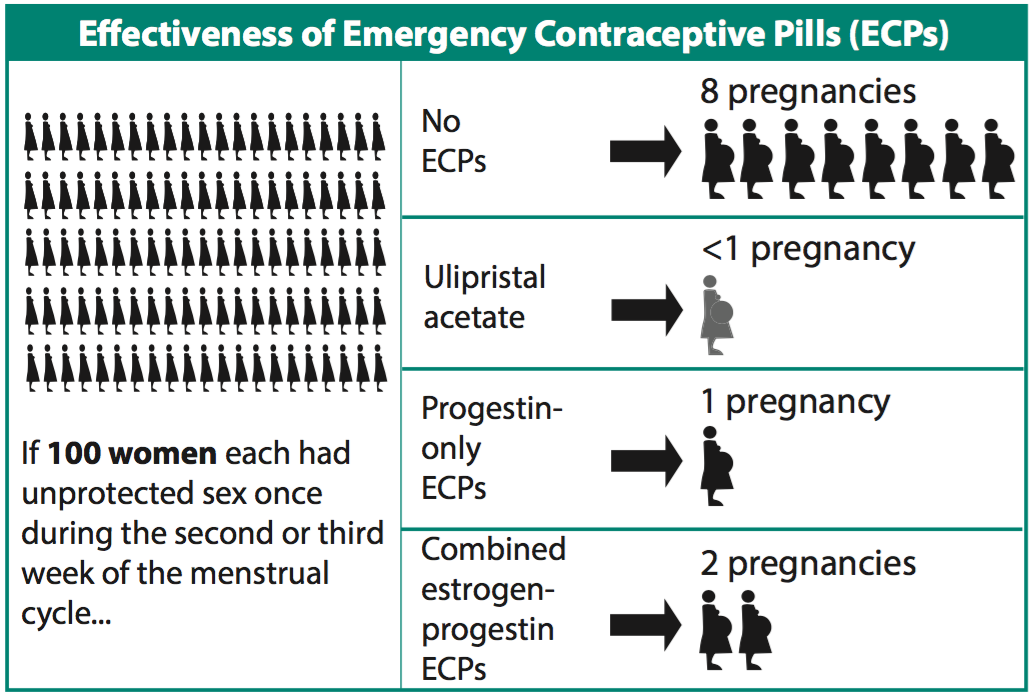Chapter 3 Download Chapter
CHAPTER 3 - Emergency Contraceptive Pills
What Are Emergency Contraceptive Pills?
- ECPs are sometimes called “morning after” pills or postcoital contraceptives.
- Work primarily by preventing or delaying the release of eggs from the ovaries (ovulation). They do not work if a woman is already pregnant.
- (The copper-bearing IUD also can be used for emergency contraception. See Chapter 10 – Copper-Bearing Intrauterine Device.)
What Pills Can Be Used as Emergency Contraceptive Pills?
- A special ECP product with levonorgestrel only, or ulipristal acetate (UPA)
- Progestin-only pills with levonorgestrel or norgestrel
- Combined oral contraceptives with estrogen and a progestin—levonorgestrel, norgestrel, or norethindrone (also called norethisterone)
When to Take Them?
- As soon as possible after unprotected sex. The sooner ECPs are taken after unprotected sex, the better they prevent pregnancy.
- Can help to prevent pregnancy when taken any time up to 5 days after unprotected sex.
How Effective?
- If 100 women each had sex once during the second or third week of the menstrual cycle without using contraception, 8 would likely become pregnant.
- If all 100 women used ulipristal acetate ECPs, fewer than 1 woman would likely become pregnant.
- If all 100 women used progestin-only ECPs, 1 woman would likely become pregnant.
- If all 100 women used combined estrogen and progestin ECPs, 2 women would likely become pregnant.

Return of fertility after taking ECPs: No delay. A woman can become pregnant immediately after taking ECPs. Taking ECPs prevents pregnancy only from acts of sex that took place in the 5 days before. They will not protect a woman from pregnancy from acts of sex more than 24 hours after she takes ECPs. To stay protected from pregnancy, women must begin to use another contraceptive method (see Planning Ongoing Contraception).
Protection against sexually transmitted infections (STIs): None